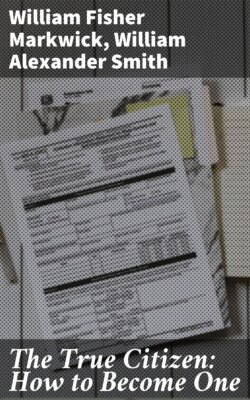Читать книгу The True Citizen: How to Become One - William Alexander Smith - Страница 17
На сайте Литреса книга снята с продажи.
ABRAHAM LINCOLN.
ОглавлениеAbraham Lincoln was a poor boy. His early life was full of hardships; but many a kind friend helped him in his struggle against poverty. Among these friends of his early youth was one, Jack Armstrong, of New Salem, Illinois, whose kind, good-hearted wife performed for Lincoln many a motherly act of kindness. She made his clothes and "got him something to eat while he rocked the baby." Years passed by. Lincoln became a successful lawyer. Soon after he had entered upon the practice of his profession at Springfield, his old friend, Jack Armstrong died. The baby whom Lincoln had rocked grew into a stout but dissolute young man. He was arrested, charged with the crime of murder. "Aunt Hannah," as Lincoln used to call her, was heartbroken with sorrow for her poor, misguided boy. In her grief she appealed to the "noble, good Abe," who had rocked her son when he was a baby. The appeal brought tears to the eyes of Lincoln. His generous heart was touched. He resolved to discharge the debt of gratitude which neither his great success in life nor the intervening years had erased from his memory. He pledged his services without charge.
"Aunt Hannah" believed that her boy was innocent and that others wished to fasten the crime upon him because of his bad reputation. The circumstances of the case were as follows: While Armstrong was in the company of several fast young men, they became intoxicated. A "free fight" ensued in which a young fellow named Metzgar was killed. After hearing the facts, Lincoln was convinced that the young man was not guilty, and resolved to do his best to save him from the gallows.
Lincoln secured a postponement of the trial and spent much time in tracing the evidence. He labored as hard to pay his old debt of gratitude as he would have done if he had been offered a five thousand dollar fee.
The day for the trial came. Lincoln threw his whole soul into the effort to defend the life of his client. He succeeded in proving his innocence beyond the shadow of a doubt. The closing of his plea was a marvel of eloquence. He depicted the loneliness and sorrow of the widowed mother, whose husband had once welcomed to his humble home a strange and penniless boy. "That boy now stands before you pleading for the life of his benefactor's son."
When the jury brought in the verdict, "not guilty," a shout of joy went up from the crowded court room. The aged mother pressed forward through the throng and, with tears streaming from her eyes, attempted to express to Lincoln her gratitude for his noble effort.
Some months afterward Lincoln called to see her at her home. She urged him to take pay for his services. "Why, Aunt Hannah," he exclaimed, "I shan't take a cent of yours; never! Anything I can do for you, I will do willingly, and without any charge."
True gratitude never forgets. No one can possess too much gratitude any more than he can have too much honesty or truthfulness. It was a "pearl of great price" in Lincoln's heart. He was truer and nobler for it; and it did much to endear him to the American people, by whom he is still remembered as one of the most large-hearted and liberal-minded men our country has produced.
[Footnote: See also biographies of Lincoln, by Holland (1865); Arnold (1868); Lamon (1872); Nicolay and Hay (1890); Schurz (1892); and Herndon (1892, revised edition).]
